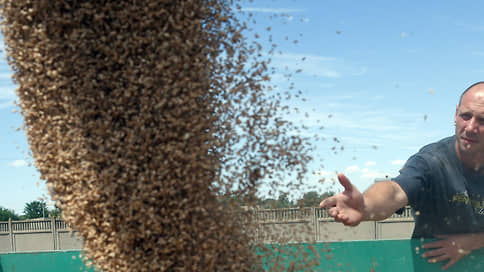An alarm is heard from the fields – Newspaper Kommersant No. 22 (7467) dated 02/07/2023
[ad_1]

Despite the record grain production in 2022, serious risks remain in the Russian agricultural sector, follows from a survey of specialists and managers of agricultural companies conducted by the consulting company Yakov and Partners. The problems caused by excess production are exacerbated by the refusal of the Ministry of Agriculture in 2023 to purchase grain from the market to the intervention fund, problems with logistics and a shortage of agricultural equipment. Both the authorities and analysts consider the increase in exports to be the main mechanism for curbing the emerging crisis.
A new survey of the Russian agro-industrial complex conducted by Yakov & Partners (created in the summer of 2022 on the basis of the former Russian division of McKinsey & Co) captures the fears of farmers and experts about the situation in the Russian agricultural sector, which remains tense despite the record (153.8 million tons in net weight) grain harvest in 2022. One of the main problems voiced by the respondents is the overstocking of the market with grain, which, combined with logistical difficulties, causes concern among the leaders of the agro-industrial complex. According to Yakov & Partners, farmers have tens of millions of tons of grain in storage, which, as expected, may remain there until the next season – in monetary terms, the final stocks of grain this year (26 million tons, including 17 million tons of wheat) amount to about 260 billion rubles. At the same time, export prospects are unclear: on the one hand, the Ministry of Agriculture estimates them quite high – 30-35 million tons for the first half of 2023, on the other hand, market participants cannot export large volumes of products due to high export duties. And the analysts themselves, as well as the authorities, although they recognize the importance of easing, emphasize that the reduction in duties may limit the regulator’s ability to keep prices on the domestic market. Farmers’ incomes are also threatened by the Ministry of Agriculture’s refusal to undertake procurement interventions in 2023. The ministry explains this decision by the fact that the 3 million tons of grain purchased for the state fund last year form “food security”, and further purchases are partly pointless, partly impossible: there is not only nothing to buy large volumes of products, but also nowhere to store them, she explained yesterday First Deputy Minister of Agriculture Oksana Lut.
A repetition of performance records from the agricultural sector next year is not expected. Difficulties are related, among other things, to the insufficient supply of the Russian agro-industrial complex with agricultural machinery and spare parts for it: if less powerful equipment can still be imported from “friendly” states, then more powerful equipment was traditionally purchased in countries that severed or froze relations with Russian business after the imposition of sanctions. The agricultural sector is still heavily dependent on the import of spare parts: the demand for them has been growing all last year, continues to increase this year and is only partially satisfied by parallel imports (see Kommersant on February 6). Part of the burden of providing the Russian agro-industrial complex with equipment falls on domestic production, for which the PRC has become one of the main “import substitutes” (see monitoring).
Additional costs for farmers are associated with a shortage of high-quality seeds and plant protection products (PPPs): market participants either have to look for acceptable alternatives or invest in technologies for the sake of economy (including the practice of “smart farming”, including the creation of soil maps for differentiated seeding and the use of PPPs ), which requires significant additional investment. The need to compete for workers also causes concern among the leaders of the agro-industrial complex: according to the February review of regional economies by the Central Bank, 46% of agricultural companies faced a shortage of personnel (see Kommersant on February 6).
Taking into account the record harvest volumes, the increasing costs of ensuring the uninterrupted operation of the industry and the growing cost of storing grain in elevators (50–80 rubles per ton per month at the end of 2022), Yakov & Partners analysts suggest that farmers increase exports, which will be able to some extent least reduce the severity of the consequences of the crisis in the agro-industrial complex.
[ad_2]
Source link






